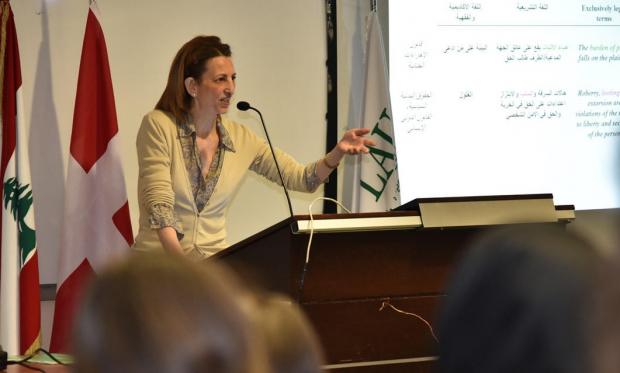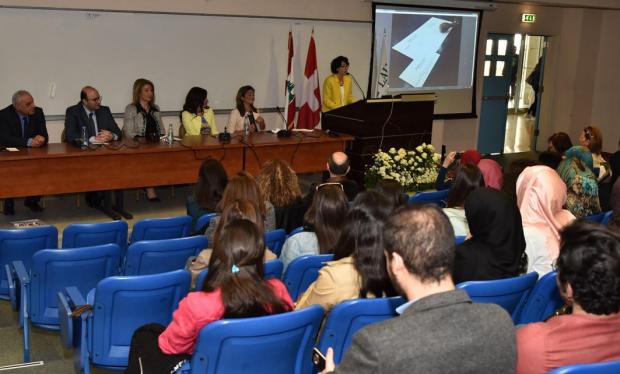Embassy of Switzerland and LAU collaborate for valuable translation workshop
In collaboration with the Embassy of Switzerland in Lebanon, LAU gathered professionals and students for a two-day symposium held March 27-28 to discuss pragmatic approaches to medical and legal translation.
“The aim of this event is to keep students up-to-date with current research and developments in the field, and to put them in touch with other students and professionals,” said Associate Professor Nuwar Diab who organized the event in collaboration with the Embassy of Switzerland in Lebanon and LAU’s Office of Development.
With the current international migration crisis, the focus of the symposium had a special resonance. In his welcoming note, LAU President Joseph G. Jabbra reminded the audience of the importance of interpretation and translation at a time of major global displacement, where refugees “need to access proper health care, and know about laws and their rights in the host country.”
Swiss Ambassador to Lebanon, François Barras said, “I hope that our collaboration with LAU will bring Swiss and Lebanese teachers together to develop fruitful relationships and exchanges.” LAU hosts translation workshops twice a year and this is the first time that it has received diplomatic support.
A professor of computer science with special interest in software engineering, Dean of the School of Arts and Sciences Nashat Mansour, raised concerns about machine translation. “Current machine translation solutions are useful, especially when they address narrow and limited domains, but they are never perfect,” he said “There will still be a strong need for human translators, at least for the next few decades.”
Nour Nasser, a second-year student in translation at LAU has been working as an interpreter with NGOs dealing with Syrian refugees in Lebanon. She echoed Mansour’s sentiment. “Human compassion is crucial when dealing with human beings who have been through hardship. As a Lebanese interpreter, I have both an understanding of Syrian expressions and body language as well as a knowledge of Western culture that a machine will never get.”
Sonia Asmahène Halimi, assistant professor and co-director of the Translation Department and head of the Arabic Unit at UNIGE shared her expertise on the challenges posed by legal translation, emphasizing that students need to “have a practical approach to translation and follow a strong methodology based on documentation and terminology.”
Her presentation was followed by a panel composed of a sworn translator, a notary public, an attorney-at-law, an interpreter, and an expert in the verification of handwriting and fingerprints.
From the procedures involved in becoming a sworn translator to ways of identifying falsified or forged legal and confidential documents, the experts shared their experiences emphasizing the importance of accuracy, confidentiality and authenticity in dealing with clients.

